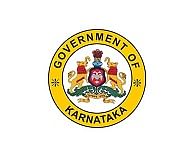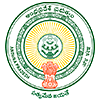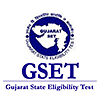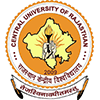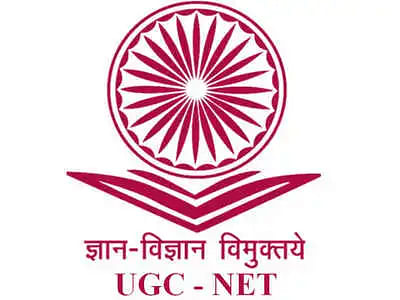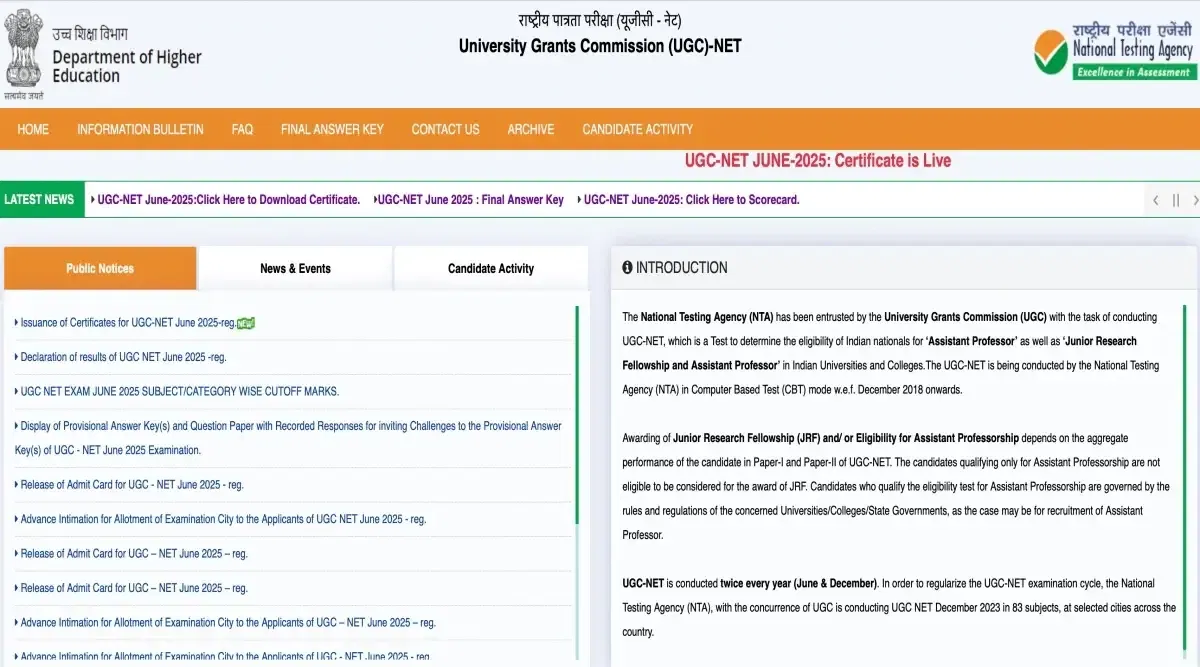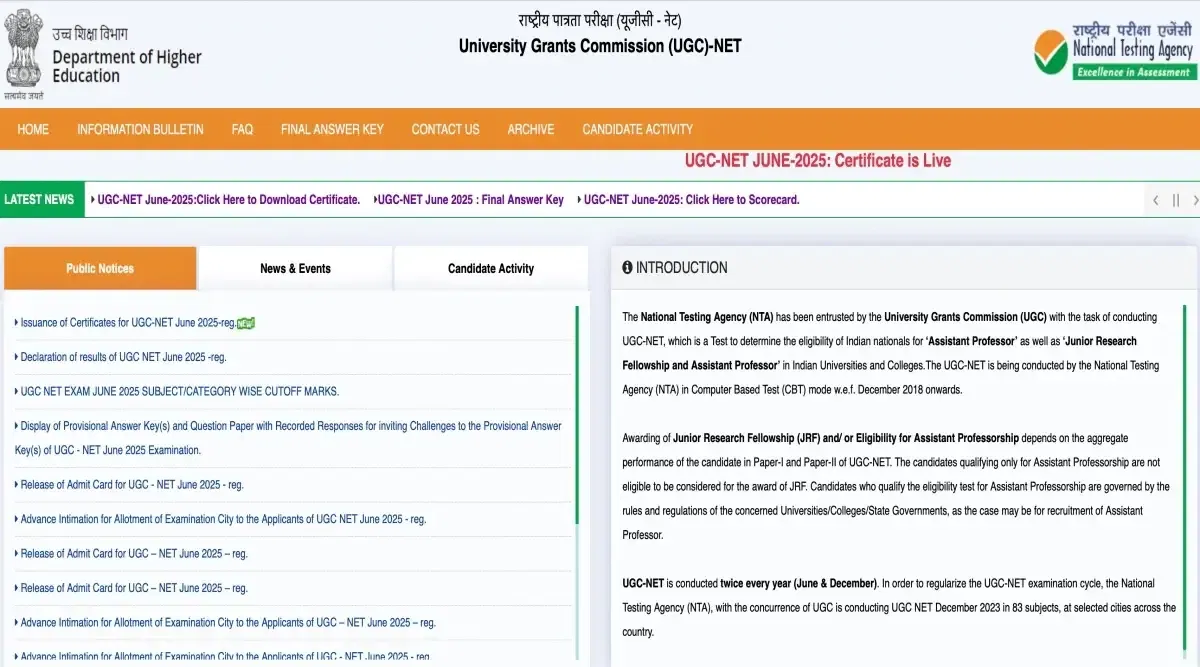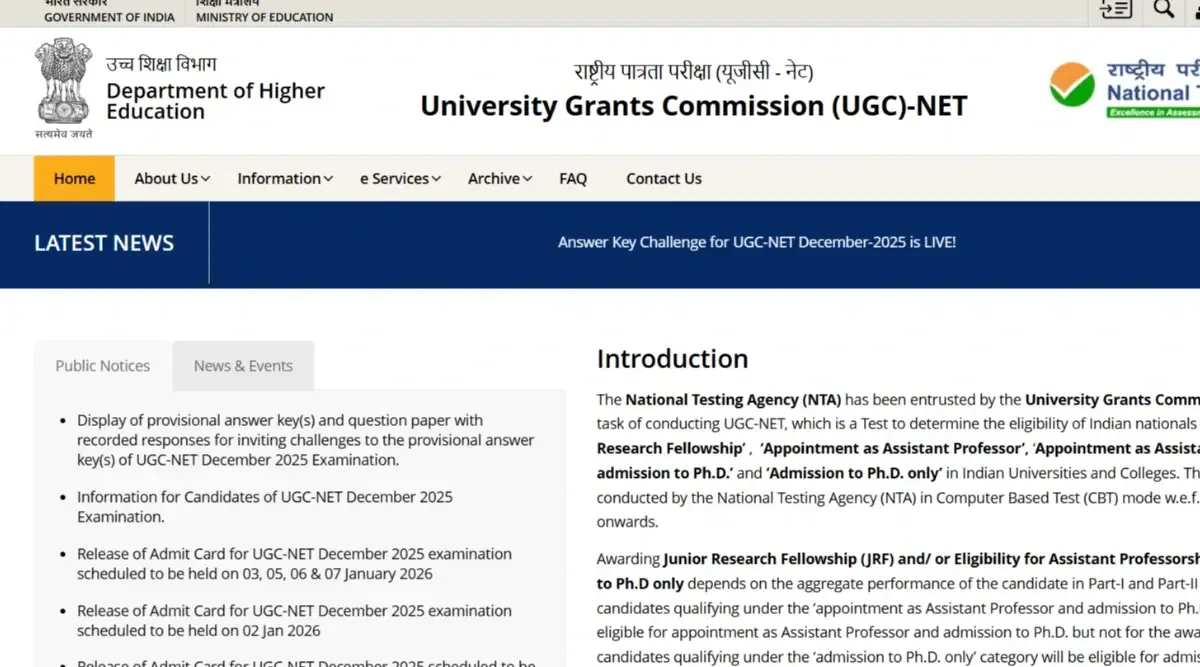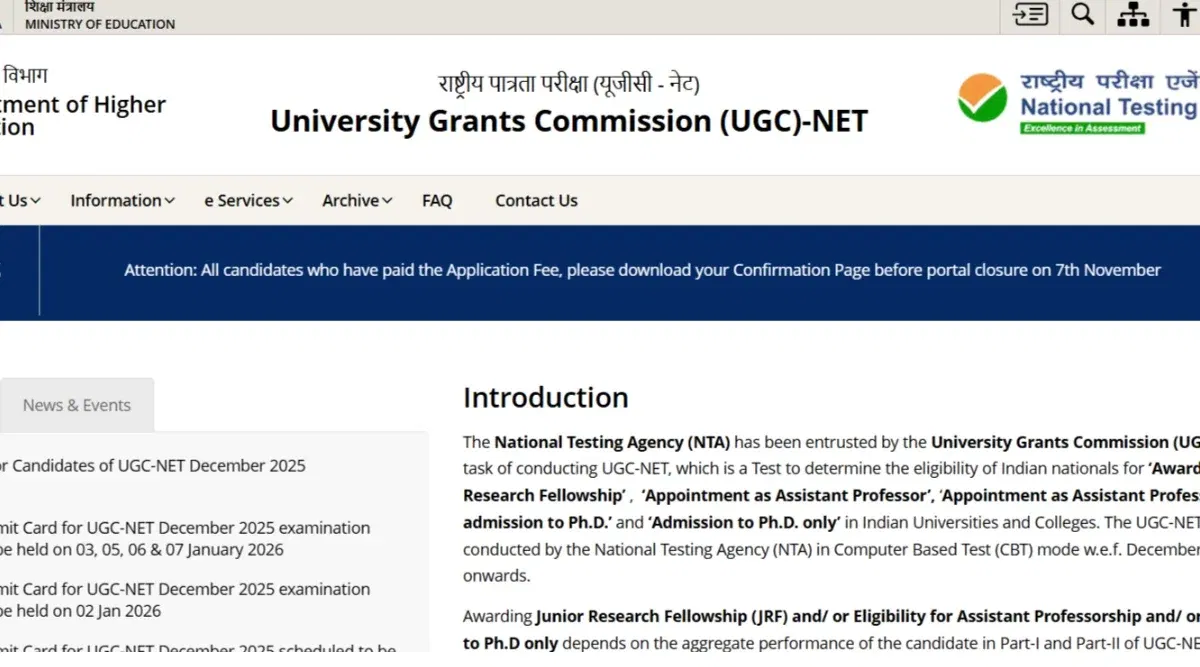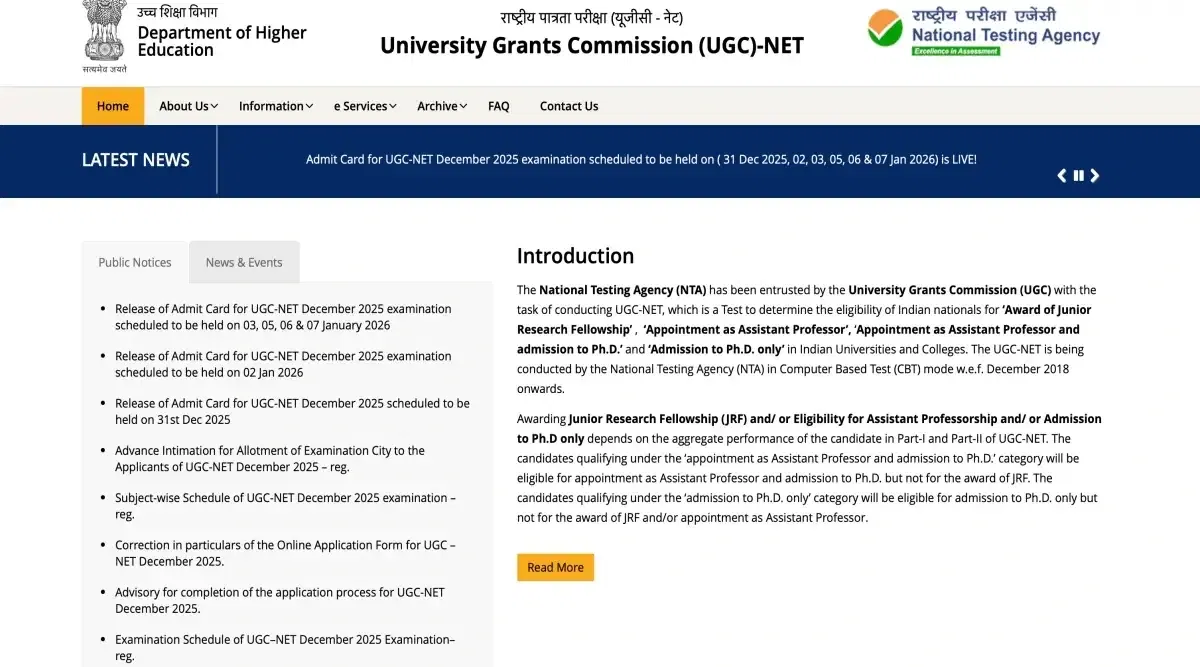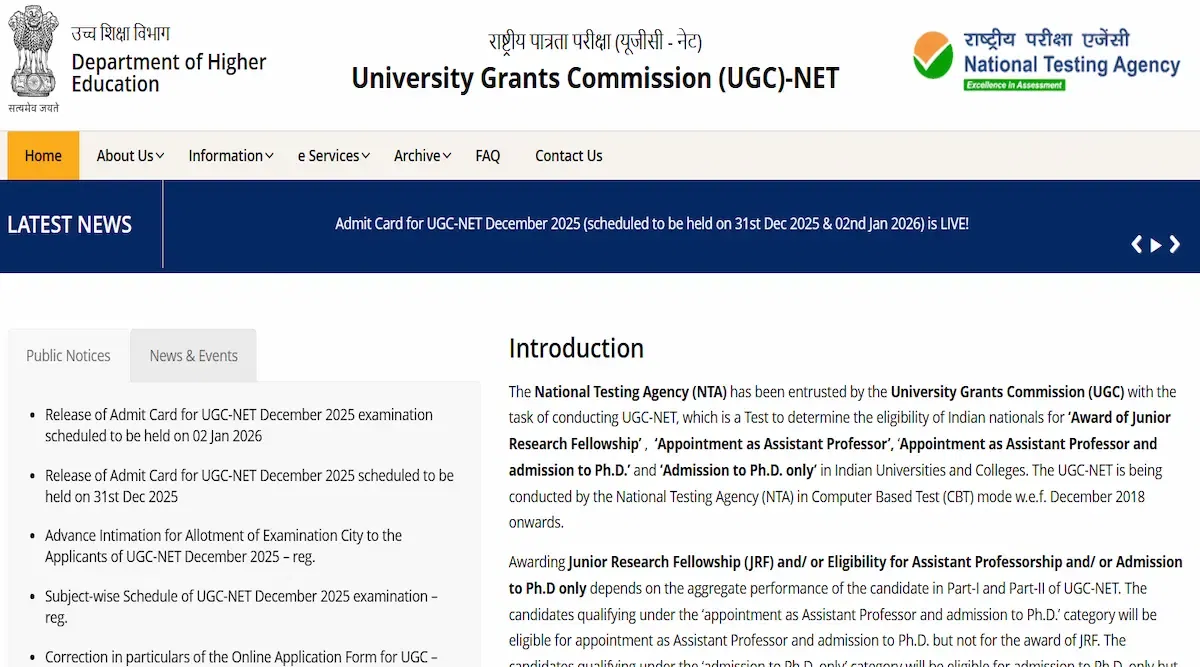
Table of Contents
UGC NET Management Syllabus 2025 includes managerial topics such as management concepts, human resource management, financial management, strategic management, etc. UGC NET is one of the most prestigious National Level Examination, which holds around 81 optional subjects for students, which they can choose in accordance with their expertise and degree.
The subject code for Management in UGC NET Exam 2025 is 17. It comprises two online papers, namely Paper I & Paper II, with Multiple Choice Questions (MCQs).
UGC NET Management Syllabus 2025: PDF
The syllabus for NTA UGC NET Management Syllabus 2025 comprises ten major units with various topics and subtopics as mentioned in this article. Candidates will need to go through all these ten units to make sure they have a fighting chance are clearing the examination. The ten units under the management syllabus are as follows:
The download link for the UGC NET Management Syllabus 2025 PDF has been provided below.
| Particulars | Link |
| UGC NET Management Syllabus PDF | Download PDF |
Given below is the tabulated list of NTA Management Units I-X, with the topics, helping the students to prepare well.
Unit-I - Management
Topics in the first unit focus on the study of methods of dealing and controlling groups, things, or people in the area of communication, decision making, concepts, measurement, types of inflation or national income, and ethics of business with governance.
| Chapters | Topics |
| Management | Concept, Process, Theories & Approaches, Management roles, and Skills |
| Functions | Coordinating and Controlling, Organizing, Planning, Staffing |
| Communication | Process and Barriers, Types |
| Decision Making | Concept, Process, Techniques, and Tools |
| Organization Structure and Design | Authority, Centralisation, Responsibility, Types, Decentralisation and Span of Control |
| Managerial Economics | Concept & Importance |
| Demand analysis | Utility Analysis, Indifference Curve, Elasticity & Forecasting |
| Market Structures | Market Classification & Price Determination |
| National Income | Concept, Types, and Measurement |
| Inflation | Concept, Types, and Measurement |
| Business Ethics & CSR | -- |
| Ethical Issues & Dilemma | |
| Corporate Governance | |
| Value-Based Organisation |
Unit-II - Organizational Behavior
The topics often highlight more about the interface between the organization and the behavior of human beings, and the organization, the behavior of the group, individual, organizational, and interpersonal. A study on analysis of the jobs aspects and transactional analysis.
| Chapters | Topics |
| Organisational Behaviour | Significance & Theories |
| Individual Behaviour | Personality, Perception, Values, Attitude, Learning, and Motivation |
| Group Behaviour | Team Building, Leadership, Group Dynamics |
| Interpersonal Behaviour & Transactional Analysis | -- |
| Organizational Culture & Climate | |
| Workforce Diversity & Cross Culture Organisational Behaviour | |
| Emotions and Stress Management | |
| Organisational Justice and Whistle Blowing | |
| Human Resource Management | Concept, Perspectives, Influences, and Recent Trends |
| Human Resource Planning, Recruitment, and Selection, Induction, Training, and Development | -- |
| Job Analysis, Job Evaluation, and Compensation Management |
Unit-III - Human Resource Management
The management syllabi that covers more on the management approach bringing a strategic plan to increase employee performance, skills and organizational development, international human resources development, and more.
| Chapters | Topics |
| Strategic Role of Human Resource Management | -- |
| Competency Mapping & Balanced Scoreboard | |
| Career Planning and Development | |
| Performance Management and Appraisal | |
| Organization Development, Change & OD Interventions | |
| Talent Management & Skill Development | |
| Employee Engagement & Work-Life Balance | |
| Industrial Relations | Disputes & Grievance Management, Labour Welfare and Social Security |
| Trade Union & Collective Bargaining | -- |
| International Human Resource Management | HR Challenge of International Business Green HRM |
Unit-IV - Financial Statements
This section considers study on easily understandable and easily structured forms of financial information related to topics like accounting principles and standards, capital structure, operating, budgeting and levering, and more.
| Chapters | Topics |
| Accounting Principles and Standards, Preparation of Financial Statements | -- |
| Financial Statement Analysis | Ratio Analysis, Funds Flow and Cash Flow Analysis, DuPont Analysis |
| Preparation of Cost Sheet, Marginal Costing, Cost Volume Profit Analysis | -- |
| Standard Costing & Variance Analysis | |
| Financial Management, Concept & Functions | |
| Capital Structure | Theories, Cost of Capital, Sources, and Finance |
| Budgeting and Budgetary Control, Types and Process, Zero Base Budgeting | -- |
| Leverages | |
| Operating, Financial and Combined Leverages, EBIT–EPS Analysis, Financial Breakeven Point & Indifference Level |
Unit V - Financial Management
Mainly deals to understand and study to acquire the process of organization, planning, monitoring, operating, and controlling the financial resources to obtain the vision and objective of an organization with the understanding of all the topics listed below.
| Chapters | Topics |
| Value & Returns | Time Preference for Money, Valuation of Bonds and Shares, Risk and Returns |
| Capital Budgeting | Nature of Investment, Evaluation, Comparison of Methods; Risk and Uncertainty Analysis |
| Dividend | Theories and Determination |
| Mergers and Acquisition | Corporate Restructuring, Value Creation, Merger Negotiations, Leveraged Buyouts, Takeover |
| Portfolio Management | CAPM, APT |
| Derivatives | Options, Option Payoffs, Option Pricing, Forward Contracts & Future Contracts |
| Working Capital Management | Determinants, Cash, Inventory, Receivables and Payables Management, Factoring |
| International Financial Management, Foreign exchange market | -- |
Unit VI - Strategic Management
The kind of management studies that aim at strategic management, implementation, formulation, market segmentation, product and pricing decision making, place and promotion, the accessible formulation to achieve growth in an organization.
| Chapters | Topics |
| Strategic Management | Concept, Process, Decision & Types |
| Strategic Analysis | External Analysis, PEST, Porter’s Approach to Industry Analysis, Internal Analysis – Resource-Based Approach, Value Chain Analysis |
| Strategy Formulation | SWOT Analysis, Corporate Strategy – Growth, Stability, Retrenchment, Integration, and Diversification, Business Portfolio Analysis - BCG, GE Business Model, Ansoff’s Product-Market Growth Matrix |
| Strategy Implementation | Challenges of Change, Developing Programs Mckinsey 7s Framework Marketing |
| Marketing | Concept, Orientation, Trends and Tasks, Customer Value and Satisfaction |
| Market Segmentation, Positioning, and Targeting | -- |
| Product and Pricing Decision | Product Mix, Product Life Cycle, New Product development, Pricing – Types and Strategies |
| Place and Promotion Decision | Marketing Channels and Value Networks, VMS, IMC, Advertising and Sales Promotion |
Unit VII - Consumer and Industrial Buying Behavior
The act of human behavior in buying, paying interest in the product, the decision processes with the product, the emerging trends in the market, international involvement in marketing in the industry. This type of analysis is studied under the topics.
| Chapters | Topics |
| Consumer and Industrial Buying Behaviour | Theories and Models of Consumer Behaviour |
| Brand Management | Role of Brands, Brand Equity, Equity Models, Developing a Branding Strategy; Brand Name Decisions, Brand Extensions, and Loyalty |
| Logistics and Supply Chain Management, Drivers, Value creation, Supply Chain Design, Designing and Managing Salesforce, Personal Selling | -- |
| Service Marketing | Managing Service Quality and Brands, Marketing Strategies of Service Firms |
| Customer Relationship Marketing | Relationship Building, Strategies, Values, and Process |
| Retail Marketing | Recent Trends in India, Types of Retail Outlets |
| Emerging Trends in Marketing | Concept of e-Marketing, Direct Marketing, Digital Marketing, and Green Marketing |
| International Marketing | Entry Mode Decisions, Planning Marketing Mix for International Markets |
Unit VIII - Statistics for Management
A statistical data management system designed to analyze, organize, and examine business problems with the help of hypothesis testing, analysis on correlation, monitoring sequencing, and resource planning type of management.
| Chapters | Topics |
| Statistics for Management | Concept, Measures Of Central Tendency and Dispersion, Probability Distribution – Binominal, Poison, Normal and Exponential |
| Data Collection & Questionnaire Design | |
| Sampling | Concept, Process, and Techniques |
| Hypothesis Testing | Procedure; T, Z, F, Chi-square tests |
| Correlation and Regression Analysis | |
| Operations Management | Role and Scope |
| Facility Location and Layout | Site Selection and Analysis, Layout – Design and Process |
| Enterprise Resource Planning | ERP Modules, ERP implementation |
| Quality Management and Statistical Quality Control, Quality Circles, Total Quality Management | KAIZEN, Benchmarking, Six Sigma; ISO 9000 Series Standards |
| Operation Research | Transportation, Queuing Decision Theory, PERT / CPM |
Unit IX - International Business
This particular topic section emphasis more on the trade of goods and services, technology, investment across national borders, involving an international flow of business, international trade procedure and documentation to foreign direct investment, and more.
| Chapters | Topics |
| International Business | Managing Business in Globalization Era; Theories of International Trade; Balance of Payment |
| Foreign Direct Investment | Benefits and Costs |
| Multilateral Regulation of Trade and Investment under WTO | -- |
| International Trade Procedures and Documentation; EXIM Policies | |
| Role of International Financial Institutions | IMF and World Bank |
| Information Technology | Use of Computers in Management Applications; MIS, DSS |
| Artificial Intelligence and Big Data | -- |
| Data Warehousing, Data Mining, and Knowledge Management | Concepts Managing Technological Change |
Unit X - Entrepreneurship Development
Involving topics in the following with regards to enhancement of skills and knowledge of entrepreneurs through planning, innovations in businesses, developing in the kind of entrepreneurship to improve the business and economy.
| Chapters | Topics |
| Entrepreneurship Development | Concept, Types, Theories, and Process, Developing Entrepreneurial Competencies |
| Intrapreneurship | Concept and Process |
| Women Entrepreneurship and Rural Entrepreneurship | -- |
| Innovations in Business | Types of Innovations, Creating and Identifying Opportunities, Screening of Business Ideas |
| Business Plan and Feasibility Analysis | Concept and Process of Technical, Market, and Financial Analysis |
| Micro and Small Scale Industries in India; Role of Government in Promoting SSI | -- |
| Sickness in Small Industries | Reasons and Rehabilitation |
| Institutional Finance to Small Industries | Financial Institutions, Commercial Banks, Cooperative Banks, Micro Finance |
Best Books for UGC NET Management 2025
To get enough scores on excelling on the upcoming UGC NET Exam, it would take not only reading the UGC NET books but also covering the NTA UGC NET Management syllabus 2025.
Getting the right book is vital, and competitive exams require all the elements of a good book. Always opt for books that are simple to understand and up to the point as listed in the point below. Scoring well wouldn’t be a surprise. All the best!
| Books | Authors |
| Financial Management | IM Pandey |
| Organizational Behavior | Stephen P.Robbins, Timothy A.Judge |
| Marketing Management | Philip Kotler, Kevin Lane Keller (Pearson Education) |
| Human Resource Management | Trueman |
| Indian Economy | S.K.Mishra and V.K.Puri |
| NTA UGC NET Management Previous Year Papers | R Gupta’s |
| UGC NET NTA Management (Premium Solved Papers) | Bookhives |
| Modern Micro Economics (2nd edition) | A Koutsoyiannis |
| NTA UGC NET/SET/JRF Management | Raman |
UGC NET Management Exam Pattern 2025
Having two types of paper, let us first understand the UGC NET exam pattern for the management section.
Candidates appearing should check out for the revised syllabus:
- Paper-I: Evaluate skills and eligibility based on Teaching and Research Ability
- Paper-II: Questions based on the subjects opted by the candidate choice
| Highlights | UGC NET Paper-I | UGC NET Paper-II |
| Test Mode | Online | |
| Duration of Test | 3 hours (180 minutes) | |
| Paper Type | Common | Subject Specific/Preference-based questions |
| Questions Type | MCQs | |
| No of Questions | 50 | 100 |
| Mark in Total | 100 | 200 |
| Marking Scheme | No negative Marking, 2 marks per correct response | |
| Language medium | English & Hindi | |
Note: There will be a continuation of the test with no break/short recess from Paper-I to Paper-II unless emergencies/technical glitches arise.
How to Prepare for UGC NET Management Exam?
UGC NET Management exam preparation requires consistent hardwork and effort. Moreover, candidates must create a realistic preparation schedule. To help you with your preparation for UGC NET Management syllabus, we have gathered some useful tips.
- Get familiar with the UGC NET Management syllabus, exam pattern, marking scheme, etc.
- Focus on the topics that carry high weightage and asked repetitively in the exam.
- Prepare a timetable that you can follow on a daily basis. Spend time on each topic wisely, based on your strength and weakness.
- Refer to the best books of UGC NET Management. It is advisable to prepare short notes to remember important topics and concepts.
- Make sure to solve UGC NET previous years’ papers, mock tests, and sample papers.
- Revision is the key to score well in an exam. You must revise all the topics and concepts on a regular basis.
- Do not study a complete new topic in the final days of your preparation.







